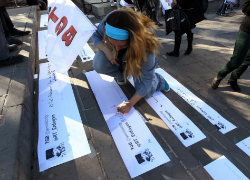On March 20, 2014, Turkey blocked its citizens from the social media website, Twitter. Turkish Prime Minister Recep Tayyip Erdoğan is the main culprit for this act. During a campaign rally, he stated “Now there is a court order. Twitter, mwitter, we will eradicate it all.” His purported reason behind the block: privacy concerns.
Prime Minister Erdoğan claimed that the block was a response to Twitter’s refusal to implement several court orders. The court orders stipulated that the social media platform “remove some links” per alleged complaints filed by Turkish citizens. Despite this, many people around the world believe that the prime minister wanted to remove tweets that included hyperlinks to incriminating audio of the prime minister and other top officials engaged in corruption. One such link contained audio of a male’s voice that closely resembled Prime Minister Erdoğan’s. The voice instructed another man to “dispose of large amounts of cash from a residence amid a police investigation.” Predictably, the prime minister denied any corruption. However, due to Turkey’s recent history of blocking social media websites, this looks more like an abuse of power to silence any opposition. Such drastic measures present two immediate concerns.

First, blocking Twitter debilitates some Turkish citizens’ hopes of ascension into the European Union (“EU”). Stefan Fule, the EU’s commissioner for enlargement, recently stated that blocking Twitter “raises grave concerns and casts doubt on Turkey’s stated commitment to European values and standards.” This shows that Prime Minister Erdoğan only has his own political interests in mind, not the interests of Turkish citizens.
Second, social media platforms like Twitter empower people because it gives them a way to speak out against an authoritarian regime. This is especially important given Prime Minister Erdoğan’s recent restrictions on the flow of information through traditional media, such as newspapers and television news. Sadly, Twitter is the only remaining avenue for the Turkish citizens. It is clear that the Internet has become the “last preserve of freedom of information in Turkey.” Thus, without Twitter, the prime minister hoped to silence the Turkish people.
Objectively, Turkey’s block on Twitter was predictable. Many countries before Turkey have clung to such efforts in a last ditch effort to silence any opposition. However, the fact Turkish citizens have found ways around the restrictions showed that such oppressive measures are as draconian as the authoritarian regimes that instituted the blocks. As has been the case with other situations around the world, Turkey is the latest example of an undeniable truth: countries cannot block Twitter. Because of this, historically oppressive countries are losing their ability to deny a fundamental human right: the freedom of expression.
Casey Smartt is a 2L and a Staff Editor on the Denver Journal of International Law and Policy

